Did you know that pears were Chinese friendships’ number one enemy? I can feel your curiosity from where I’m standing. There is so much mystery to solve behind Chinese customs and beliefs, right? Well, have a sit and make yourself comfortable. We’re going to see together what is and isn’t appropriate for Chinese people. As the universal saying goes: 入乡随俗 rù xiāng suí sú Do in Rome as the Roman do. A guest must do it as his host wants. So let’s learn all about the Chinese customs and beliefs you might not have expected to watch out for and you’ll become the perfect Roman in Rome!

Observing the Chinese traditions and customs around you and adapting is the key to fully enjoying your journey in China. In this article, you’re going to learn unexpected Chinese customs you must know about, to avoid making any major cultural faux-pas. We also share the proper behaviour to have in a slew of situations, so that once you have read this guide, Chinese customs won’t throw you off. Without further ado, let’s get started.
#1 Everyday Chinese Customs to Save Face
The first surprising customs you’ll run into in China are most likely everyday beliefs and taboos you need to know about. A lot of them have to do with saving face. The concept of saving face is uniquely important in China, and elsewhere in Asia and it shouldn’t be ignored. Knowing what helps save face is therefore essential: it’s key to making those around you feel comfortable and showing them you know and respect their superstitions and traditions.
Let’s start with a topic you shouldn’t mention and two seemingly inconspicuous activities you’re better off not attempting in China.
Death
A huge taboo in China is 死 sǐ death. Trust me, you don’t want to talk about death in public in China.
As you learn about cultural taboos and traditional customs in China, you’ll find that many traditional taboos in the Chinese culture come from ancient times and stem from Taoism. Not talking openly about death is no different. In ancient China, taoist scholars would prohibit any mention of this topic. This was a way to keep death and ghosts away from their life since immortality was their ultimate goal.
An old taoist saying explains: 敬鬼神而远之 jìng guǐ shén ér yuǎn zhī Respect the ghosts and keep away from it. In short, we won’t talk about you and you won’t come bother us.
As such, even now, Chinese citizens are afraid to use the word “death” because they fear that saying it will make it real, and their family members will die.
However, this doesn’t mean that death is entirely off the table. The Chinese believe that everything forms the two sides of a same coin: for example, death and birth are linked.
Confucius said: 未知生 焉知死 wèi zhīshēngyān zhī sǐ How can you know what death is before knowing what life is?.
If to talk about death, Chinese people usually replace the word 死 by one of the following expressions: 老了 lǎo le, 走了 zǒu le they left, 不在了 bú zài le they aren't there or 过世 guò shì to say that someone passed away in a less direct manner.
We hope you won’t have to talk about such a sad subject in any case, but if you do, now at least you know what NOT to say to avoid making matters worse.
Speaking of making matters worse, here’s a color you really really shouldn’t wear on your head. Green.
Forget about green hats

Wondering why green hats are a taboo in China? Well, 戴绿帽子 dàilǜmào zi wearing a green hat, which originally innocently meant wearing a green hat, also means: to cuckold. So now, it is believed that when people wear a green hat, it means that they cheated on their partner.
According to stories, the Emperor 朱元璋 zhū yuánzhāng, who founded the Ming dynasty and ruled China from 1368 to 1398, claimed that prostituted men had to wear green hats to be recognizable among others.
Another story says that a woman forced her husband to wear a green hat when he left home. While he was out, the wife could secretly meet her lover. The green hat could be seen from afar so she had time to warn her lover so he could leave the house without being caught. Behind cheated on is a huge taboo in China, no one likes to talk about it openly, and we can easily understand they just want to save face.
I bet you’d never guess wearing a green hat could mean such a thing. So you’d better not wear one. Who likes green hats anyway? St Patrick’s Day is the only time you would have considered wearing one, right? Well, now you know it might be better to pass on that tradition in China altogether.
Kissing someone you don’t know
I see you, young boy! Don’t try to kiss a girl you don’t know, even on the cheeks and even it’s just to greet her! No. Never. Not in China. By doing that, all you’ll accomplish is getting her upset and embarrassed. Kissing someone you don’t know is viewed as disrespectful, and you should pray her boyfriend/husband didn’t see you. For western people, especially Latins, it can seem more than normal to hug or to give someone a kiss on the cheek to say hello; but if you’re meeting someone for the first time, don’t even try to say hi that way in China. A formal handshake is your best option.
As you walk around in China, you may notice that Chinese girls are very close to each other, they might kiss to greet or even hug and hold hands. That’s all good when you’re friends, but don’t be surprised or angry to see they are distant with you at first. This is the case in most countries when you’re meeting someone you don’t yet, anyways, right?
Now that you know about everyday don’ts, time to move on to another big unexpected taboo in China: numbers. Let’s talk about why the Chinese fear some numbers so much they don’t even say them out loud. Wait. Really?
#2 Surprising Chinese Customs about Numbers
Chinese people are very careful when it comes to numbers. They avoid using some of them because they represents bad luck. There’s a popular saying about numbers that sums up well how the Chinese view numbers:
They like to say 好事成双 hǎo shì chéng shuāng all good things come in pairs.
In order to prevent unlucky things from happening, Chinese people would rather choose even numbers to plan the date of a big event such as a wedding, when giving gifts ( two is better than one – sign me up for that custom!) and when getting a new phone number.
Lucky number: 8 and 6
For instance, Chinese people generally like the numbers 8 and 6, because 八 bā number 8 sounds like 发 fā rich in Chinese.
As for 六 liù number 6, it’s homophonic with 流 liú flow which represents good fortune.
Avoid the number 4
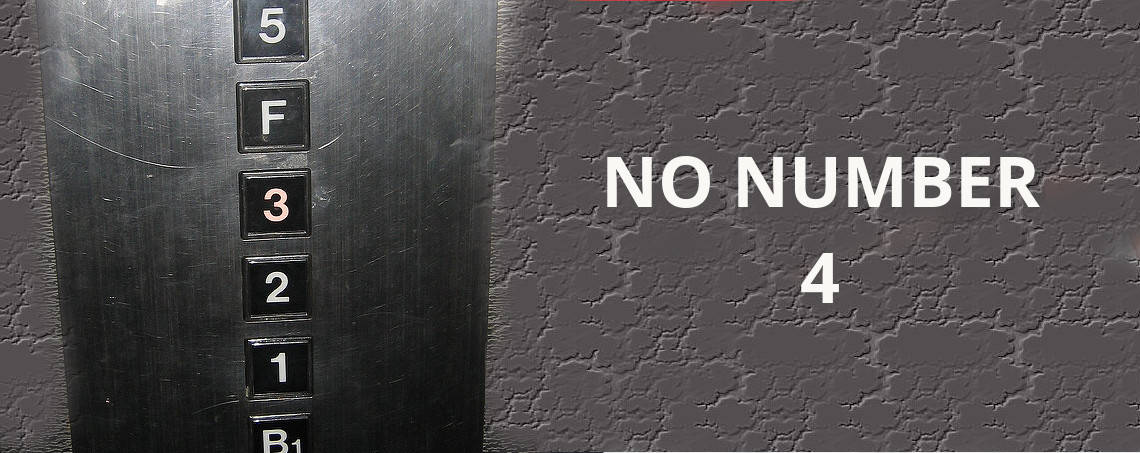
People are very wary of the number 4. In Chinese 四 sì 4 sounds like 死 sǐ death death . What an awful homophonic! That explains why, according to superstitions, 4 represents bad luck.
If you go to China, you’ll see something really surprising: there are no fourth floors in buildings. Say what? You heard me! When in an elevator, you’ll go from the 3rd floor to the 5th one. Hehe ~~
No more seven heaven
There’s another unlucky number for Chinese people:
七 qī 7Well, some like 七 because it is an homophonic of 起 qǐ start, rise which means good things for them. Maybe a new start? A new success?
It also sounds like 气 qì vital energy.
But, on the contrary, for some Chinese people, 七 is an unlucky number and that’s because of another homophonic: 欺 qī to cheat. Many couples avoid getting married on the 7th because of the 欺 homophonic.
Bonus : 250 二百五 Èrbǎiwǔ Idiot
250 is actually a very funny but strong number in Chinese and you must be careful when using it.
Calling your close friends 250 二百五 Èrbǎiwǔ Idiot can be ok but NEVER try to use it to be funny with someone you don’t know. Or get yourself ready for a fight and to leave people will a bad opinion concerning you. Make sure you remember this well if you don’t want to curse someone unintentionally!
Food is another topic that must be taken seriously in China. There are many rules when it comes to food, just like in every country: use only your right hand in India, no elbows on the table in France, tea ceremony in Japan. Read below about the Chinese manners you must have.
#3 Yummy Chinese Customs about Food
When having a meal, there are many prohibited and customary acts one must follow: at a banquet, for example, the place of honor is reserved for the host, or the most senior person in the room.
Mind the Rice Bowl
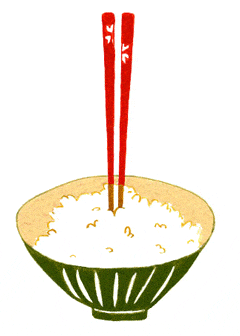
At the end of a meal, if you’re full, do not stick your chopsticks straight up in your rice bowl. Don’t, really, ever, do that! It’s said to bring you bad luck as it looks like the incense Chinese put on tombs to mourn someone that has passed away. It is all part of Chinese customs.
Another thing you must avoid when done eating is to place your rice bowl, upside down on the table. This is believed to definitely not be a good omen for you and you friends.
When it comes to food and friends, there are more pearfect ways to bring bad luck to your and your homie.
Pearfect way to be unlucky

In China, sharing a pear with friends or relatives is impossible and not something we suggest attempting. People believe that sharing a pear will bring negativity, pessimism and overall be a bad omen for your friendship or family. You’re wondering why, aren’t you? Well, in Chinese the word 分梨 fēnlí to share a pear sounds the same as 分离 fēnlí to separate. As such, the Chinese strongly believe that sharing a pear will lead to friendships splitting and even divorce.
This fear of the pear is a traditional belief we suggest you adopt in China. Don’t share a pear unless you want to end up all alone living with cats. The cat part isn’t too bad, the Nincha Team actually enjoys it. Meow. But the ending up alone isn’t the best. Everyone knows a lot of things are much fun with friends, including learning Chinese.
Now that you know to question your fruit sharing instincts, here are a few more beliefs and taboos to know about when it comes to Chinese food.
Bonus taboos:
Toothpick: When some food sticks your teeth, you are allowed to use a toothpick (and you’ll be generally offered one in a restaurant). But! You must hide your toothpicking activities by covering your mouth with your hand. It’s much nicer for those around you anyway.
Burp: To burp out loud while eating is also considered as impolite, you’d better wait to leave the restaurant for that!
Toilets: Don’t even think about taking a bathroom break during your meal. If you leave the table to go to the toilets, people will stare at you and think you’re very rude. So try to hold on and resist the urge to rush into the bathrooms, will you? Or if you really can’t, just assume your “bad” 老外 behavior for once and relieve your bladder.
#4 Merry Chinese Customs about Celebrations
Wedding customs
Weddings must be taken seriously in China. There are many taboos about love and traditionally Chinese people do not show their love publicly. This is changing as the newer generations throw caution to the wind, but some customs and traditions remain steadfast in the Chinese society.
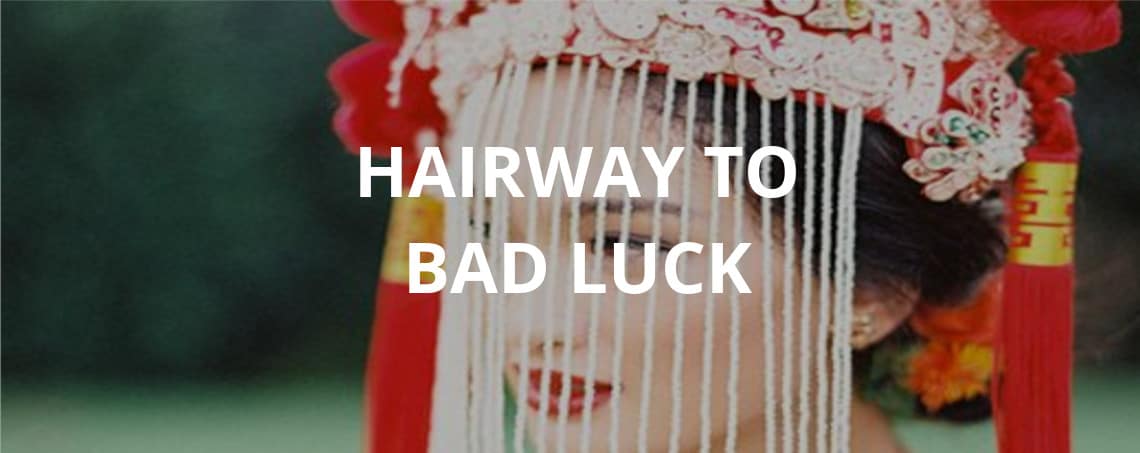
Break a leg…not the tail
Wedding guests will offer many special gifts to the newly weds. If you happen to be giving a roast pig to the bride’s family (perhaps not your first choice, but a good choice nonetheless), make sure the tail and ears aren’t broken. If they are, it means the bride is not a virgin and that would insult her family. Bet you didn’t see that one coming?
Postponed weddings
Another superstition regarding weddings is when one of the lovers’ parents passes away, then they should at least wait 100 days before getting married or it would be extremely disrespectful.
Restrictions for the newlyweds
There are many restrictions newlyweds must observe. To keep bad luck away, for instance, they must not go to funerals, other weddings and to visit someone’s newborn in the 3 months following their wedding day.
Birthday beliefs
You’re invited to someone’s birthday! How nice! But many Chinese people are invited and you fear you’ll be playing the 老外 lǎowài foreigner playing the role of the bull in the china shop. Avoid these mistakes and you’ll show you respect the Chinese customs and beliefs about birthdays.
Gifts that are not gifts:
Whatever you do, never offer your friends a clock. To protect your friendship with someone, 钟 zhōnɡ clock is prohibited as a present. 钟 sounds just like 终 zhōnɡ the end, by offering a 钟, it would mean that you want to break your friendship.
Besides, let’s add some drama, the sentence 送钟 sònɡ zhōnɡ to offer a clock has also the same sound as in 送终 sònɡ zhōnɡ to say farewell to someone dying.
And you surely don’t want to 送钟 / 送终 your best friend. Giving them a clock would curse them.
Offering a 伞 sǎn umbrella is also a very bad idea as it’s believed to be a bad omen for you and your friend. 伞 has the same pronunciation as 散 sàn to seperate ways. In short, stay away from the umbrella and the clock shops and you’ll be fine present-wise!
Longevity noodles
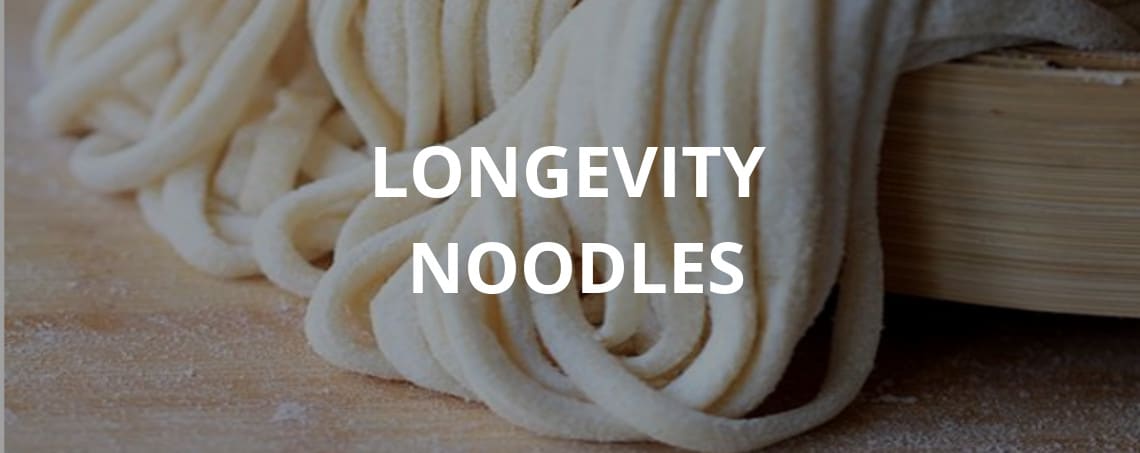
In Chinese customs, birthdays are always celebrated with a bowl of 长寿面 Chángshòu miànqī longevity noodles.
长寿面 s are really long and continuous to symbolizes long life and good health. Because their shape represents longevity, make sure you don’t cut or bite into them when eating them or it might shorten your life. When it comes to longevity noodles, slurping is better!
Chinese New Year
A lot of traditions, superstitions, beliefs, customs and taboos surround the Chinese New Year. Each year, predictions are made, so make sure you have 2016 off to the right start by checking out our predictions for your 2016 Monkey year if you haven’t yet. 🙂
Don’t use your words like a weapon
During the most expected event of the year, you must be cautious when it comes to using some words. Don’t mention the words poor, die, cut, break and gone. That should help keep away the bad luck according to Chinese customs.
An important thing you must remember is that doing something on New Year’s Eve will have an impact on the year to come. What I mean here is that if you cry on New Year’s Eve, it is believed you’ll cry all year long. If you break a dish, the new year will be full of broken things for you. So do yourself a favor, will you? Do happy, positive things on New Year’s Eve. Have fun and enjoy your life!
Hairway to bad luck
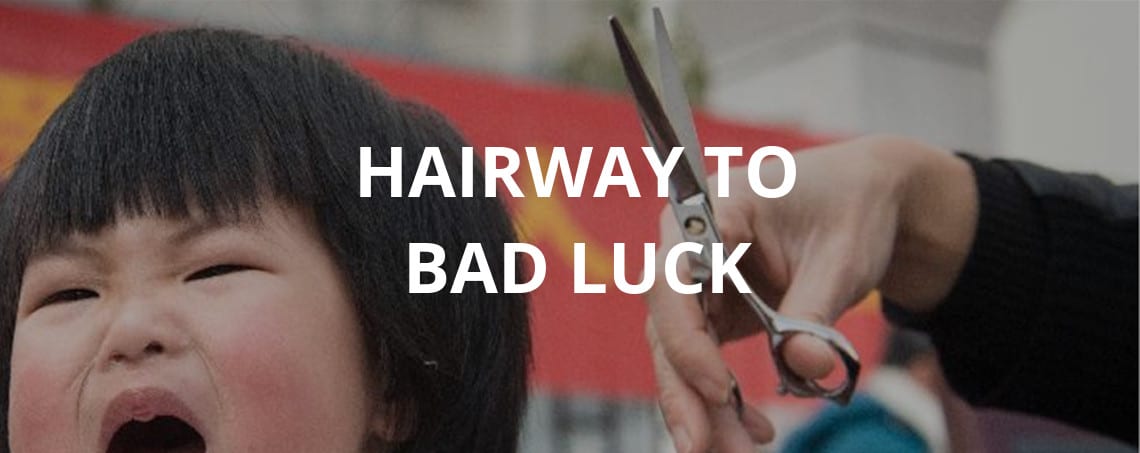
People think that the first lunar month is terribly unlucky so according to this Chinese custom, they don’t cut their hair during the 1st lunar month because they fear it will bring them bad luck. Cutting hair is losing hair and losing hair during an unlucky month can lead to lose something even more important this year. So if you want to stay lucky for the year to come, keep that in mind and grow out your hair.
Final words
Keeping your hair long concludes this series of Chinese customs and beliefs to watch out for. The Nincha Team hopes you know have all you need to know to avoid mistakes and cultural faux-pas in China. We trust you are now ready to be a real chameleon that can adapt in every situation. Right? At least you now know that this afternoon, you’ll be sharing an apple with your friend instead of a pear 😉 You’re welcome.
Do you know other Chinese customs or taboos? Have you ever felt like you’ve lost face or caused someone to lose face in a situation in China due to an unexpected custom or belief? Let us know in the comments below!
Source: traditions.cultural-china, mtfuji-hotels, zazzle, numerology-report
Pauline and
The Nincha Team
Stay in touch with us on Facebook, Twitter, Instagram, and Pinterest.






7 comments
Join the conversationPingback: Useful and Essential Chinese Expressions to fit in in China
Kate Mesh - May 9, 2016
Actually burping is not that impolite in China:
1. Everyone does that all the time and no one is offended except foreigners.
2. Historically burping after a meal was a compliment to the cook in China, and the habit still stays in a lot of houses.
The Nincha Team - May 9, 2016
Hi Kate, thanks for your comment! Actually both are right.^^ It depends on the generation, according to the elders, burping in front of someone else can be considered ok! But younger people tend to think it’s impolite. Burping is also considered impolite, depending on the place you’re at, if you burp at home with your friends or family, it may be fine, but in a restaurant, not so much. You seem to know a lot about China, have you already been there?
Pingback: Dragon Boat Festival Part 2: The Best Places to See The Boat Race - Ninchanese
Pingback: URL
Pingback: Of death, ghosts and haunted houses in Hong Kong - Visions of Asia
Pingback: Beware of Number 4: Cultural and Culinary Traditions You Need to Know before Traveling to China for the First Time -
Comments are closed.